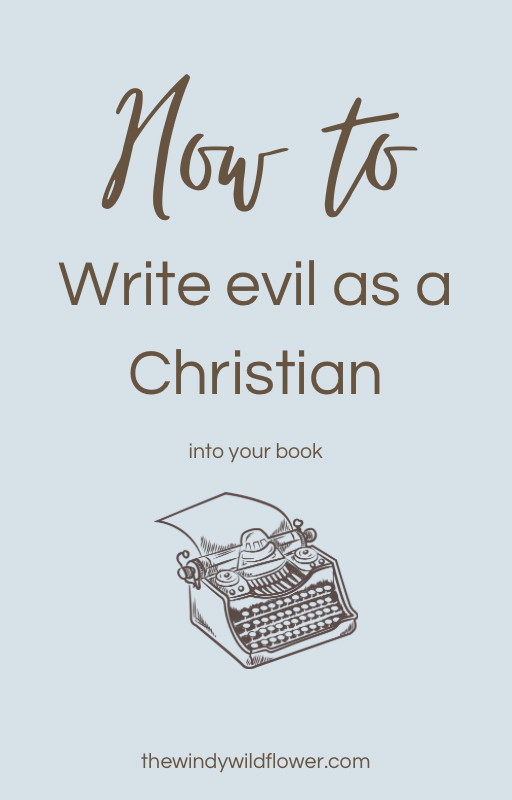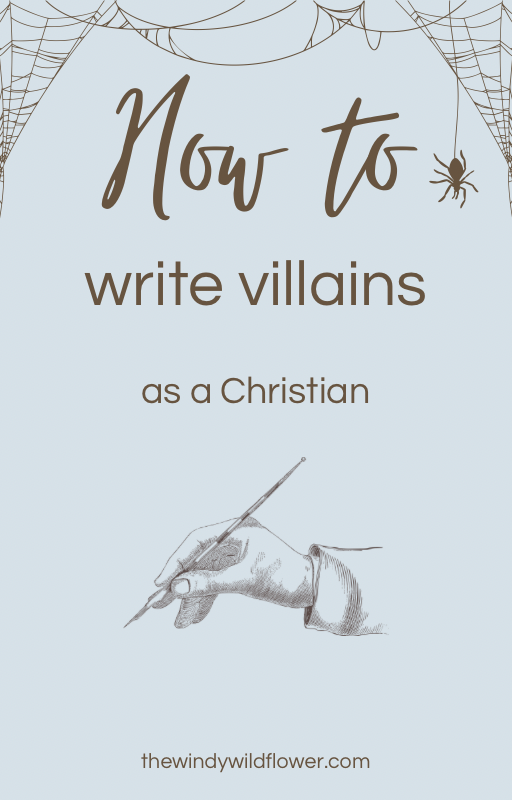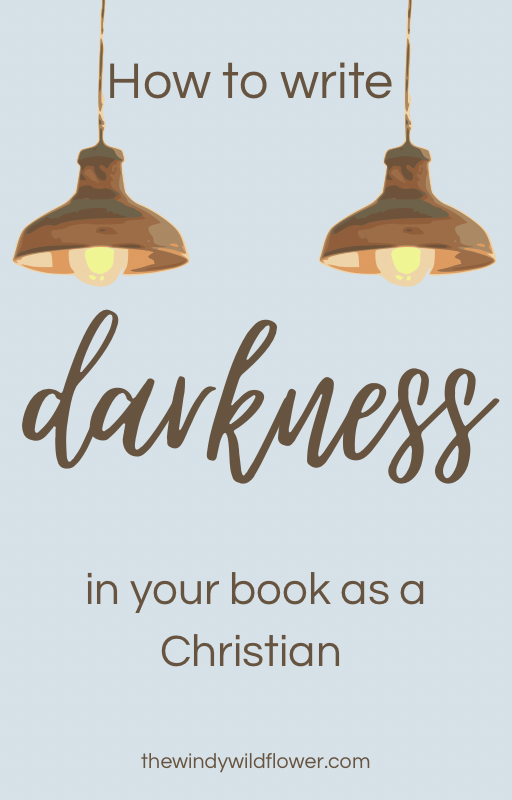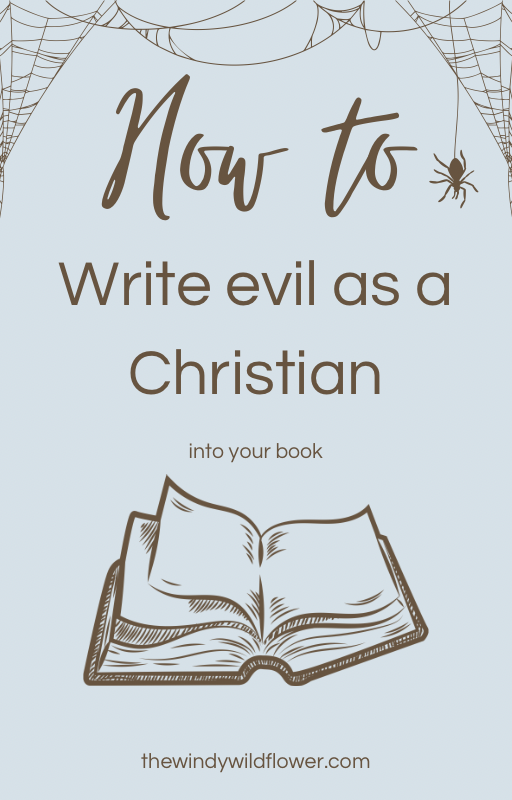How to write about evil as a Christian / Christian writing advice
Evil is a part of our world, and a part of all conflict. To write a book, you’re going to need to include some form of evil. Without darkness, there is no reason to fight for light in the world. All conflict is based around the fact that something is wrong or bad, and your character is battling against that to make it good. Conflict is based around our desires and fears, as people. Without darkness or evil, we wouldn’t have fears, and there wouldn’t be conflict.
But writing evil, or darkness, into your book as a Christian is going to look different to if you’re part of the world, rather than part of God’s Kingdom. Writing darkness as a Christian is the balancing act of not glorifying the darkness, but still giving it a rightful place in our books. By including darkness and evil, we can expose the truth to people by showing the comparative light.
By including darkness and evil, we can expose the truth to people by showing the comparative light.

We only have to look as far as the Holy Bible to find examples of darkness in writing. But the important part is that the Bible doesn’t condone it, it opposes it. There are many stories of how God’s way prevails over the darkness, every single time. So how are you going to do the same thing in your book?
The practicals of writing darkness as a Christian
Of course, your story is likely very different to the Bible stories. It can be difficult to apply what the Bible does to our stories when the writing is so different! But when you take the writing and find the core values and principles, it makes it a lot easier.
Value 1: Choosing Light
I believe there are always two sides: darkness, and light. Our stories can only be on one side, or they’re not going to make sense, and are going to give a confusing message. Hopefully, our stories are always on the side of light. There’s the argument that some things aren’t specifically “Christian” or “non Christian” but somewhere in between. I dislike this argument, as it encourages the idea that a person, thing, or story can be half Christian or half dark – which I don’t think makes any sense. God doesn’t have half children, He just has complete children of God. I want my books to be complete books of God.

The figuring out which side your book is on should be a rather simple task. Here are some questions to ask yourself.
- Does my book support positive Godly things or more dark things?
- Is love portrayed well in my book?
- Is the heart of God reflected in the writing?
- Do my characters set a good example? (they don’t have to be perfect, but should overall have good morals, and become a person we can somewhat imitate)
- Is there support of obvious darkness and actual demonic things (witchcraft, fortune telling, voodoo etc.)
Value 2: Our Position in the Darkness
When we are writing about darkness and evil, how can we do it in a way that glorifies God, not the enemy?
By taking an opposing stand against the darkness through our writing, we can write in a holy way about things that are dark. Ensuring that our writing is against the darkness, and not for it. When we read those parts in our books, they shouldn’t feel dark in our spirit, but rather be uplifting and a reminder that we are in the light.

Ensuring that our writing is against the darkness, and not for it.
Value 3: Not Dwelling on Evil
The third value I want to include is this, and all because we writers have amazing imaginations! With such abilities to create scenes and people and places, we must be careful to keep our thoughts on good things, and not get bogged down by thoughts of evil.
I know for me personally, it can be easy to get fully immersed in a scene, or part of my book, that it feels real to me. I wouldn’t want to convince my mind that dark things are actually happening to me! So caution and care in this area are important. Guarding our hearts is a must, especially as ultra creative people. We can’t let our creativity be used for darkness!
Guarding our hearts is a must, especially as ultra creative people.
Value 4: Content Matters
I think what we writers matters. Not just because it needs to sound cool, but because we are called to have discernment when it comes to the content of our writing.
I don’t think our writing should include certain things, such as nudity, profane language, sex scenes, or intense gore or evil. Intense is my key word for the last two, as a certain level of gore is appropriate. The Bible has gore, but only for a purpose, never “just because”. Let the sensitive content of our books be for a reason, and may that reason line up with our Godly morals.

Some of my writing has more sensitive content, but I’m always so eager to seek God’s heart here, and what He wants me to write, what He wants me to include. If I feel convicted that it is unnecessary, and not ultimately needed for the story, I take it out, or tone it down.
The editing stage is a great time for seeking what God wants in our books, and what He wants cut out. But even through the drafting process, it’s amazing to refine our content by writing from a right heart posture and with Jesus.
it’s amazing to refine our content by writing from a right heart posture and with Jesus.
All this to say, it’s always as simple as seeking what Jesus wants through prayer and searching the scriptures. There is no better way to learn about how to write for Him, than learning from Jesus Himself.
May our writing be filled with light, hope and peace. May it draw people further towards the light, and away from darkness.
